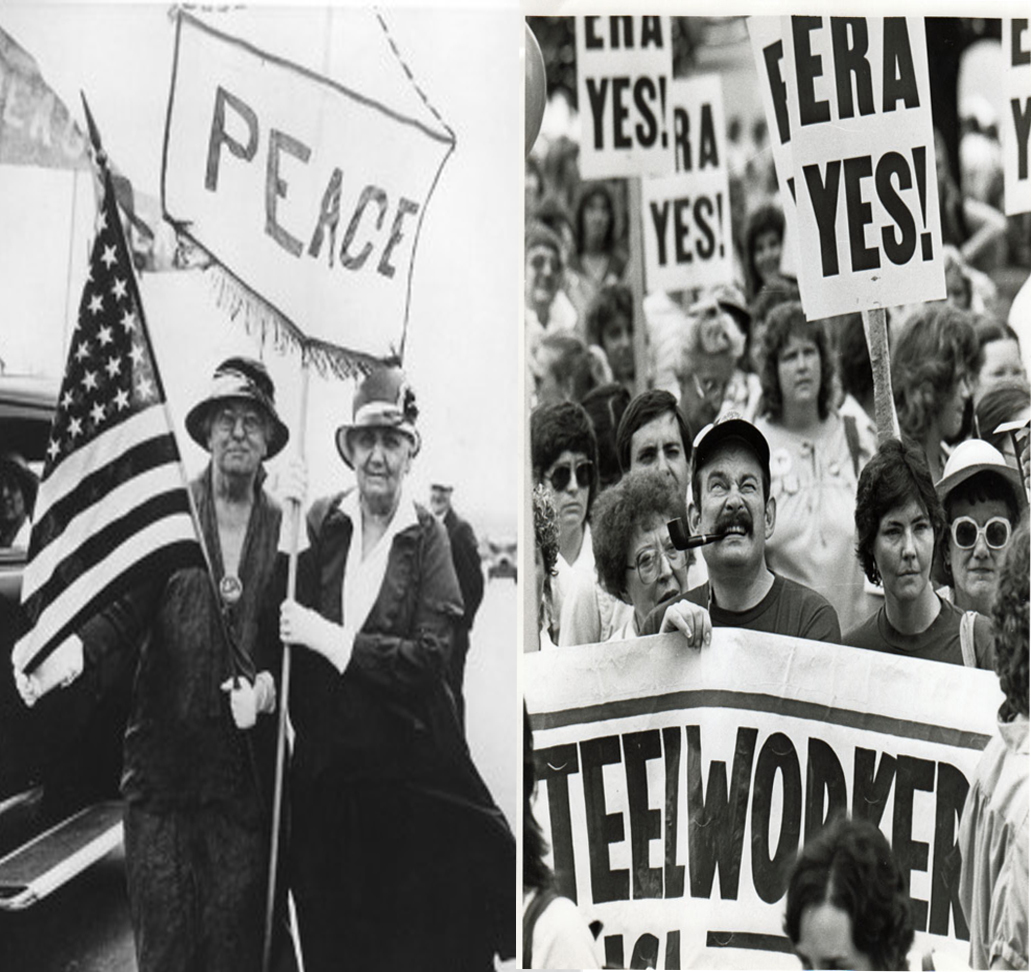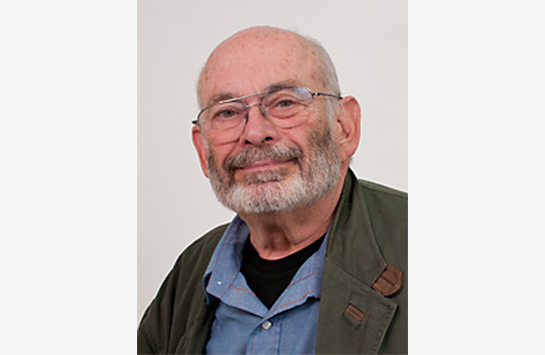Common Bond
Life of JACSW Alum, College Namesake, Intersect
Opening paragraphs

James H. Williams never had the opportunity to meet social work icon Jane Addams, having been born seven years after her death. But if he had known her, he believed the two would have been fast friends.
Williams, MSW ‘93, PhD ‘03, a retired adjunct lecturer at the University of Washington Tacoma’s College of Social Work and Criminal Justice, and Addams are kindred spirits. Addams, who died in 1935 at the age of 74, spent her life as a reformer, elevating social work from what was then known as a “friendly visitor” model to what is it today, a field where trained professionals assist vulnerable people and communities overcome challenges they face in everyday life. Recipient of the Noble Prize in 1931, Addams was also an advocate for world peace, concerned about mothers, the needs of children, and public health, all passions of Williams.
From an early age, social activism played a significant role in Williams’ life. Growing up in Cropper, Ky., a town so small it housed only a post office, general store, a mechanic’s garage, one school and two churches, Williams was surrounded by family members who were active union members. His father was a bricklayer, his brother constructed oak casks as a cooper, and his uncle a furniture maker. Union and workplace affairs were a regular topic of conversation around the dinner table, Williams said.
“I remember as a grade school student helping my uncle pass out leaflets for the CIO (Congress of Industrial Organizations),” he said. “Later, I helped him with his local union newspaper.”
Finding his calling
A National Merit semifinalist in high school, Williams enrolled at the University of Louisville, where he said, “I discovered that student activism was more interesting than attending class.” He became a charter member of Students for a Democratic Society, a group formed in 1960 on the campus of the University of Michigan that later grew to more than 300 campus chapters and 30,000 supporters throughout the U.S. He was also a founding member of the Southern Student Organizing Committee (SSOC), a student activist group in the southern U.S. that focused on numerous political and social issues, including African- American civil rights, opposition to the Vietnam War, workers’ rights, and feminism.
With his interest in unions and writing experience gained from working on his high school and college newspapers, Williams became a full-time labor journalist and organizer for the International Union of Electrical Workers (IUE) following his graduation from Louisville. Having honed his skills in social activism in college, the union sent him to lead organizing campaigns in Virginia’s Shenandoah Valley, the plains in Ohio, and the nascent delta of Memphis. Describing himself as having “itchy feet,” Williams moved on to West Virginia and then to Washington, D.C., where among other jobs he served as editor of the National Faculty Association newsletter for the National Education Association’s Higher Education Division.
During his tenure at the NEA, Williams was enlisted to lead faculty strikes at several universities throughout the country. In doing so at Michigan’s Wayne State University, he encountered Ike Krassner, a social work professor and renowned community activist. Williams became his student outside the classroom, absorbing as much knowledge as he could about social work and activism from the professor.
Interest in unions began waning in the late 1970s, and Williams felt a pull to leave his journalist work behind and become a laborer at a union steel mill. As a millwright, Williams ensured the factory’s machinery was functioning properly. His colleagues saw how carefully and skillfully he handled the equipment, and they believed he would do the same with the company’s management, eventually electing him union steward.
“As shop steward I was able to help workers resolve personal grievances with the company,” Williams said. “I learned good active listening skills and I developed the skills of ‘supportive therapy’ in that shop.” Unaware of it at the time, Williams was preparing himself for a future in social work.
Williams quote
My life since Jane Addams would not have been possible without the excellent education I received there.
Article continues

The steel market took a downturn in the early 1980s, and the struggling mill was forced to fire most of its factory workers, including Williams. His nomadic life led him to Chicago, where he found a job as a counselor in an alcohol and drug facility. Eager to learn more about his new field, Williams enrolled in substance abuse classes at a local community college at night. Courses were taught by social workers, and they “had a specific approach to working with disadvantaged populations.
JACSW welcomes Williams
“One day my instructor suggested I seek a master’s degree in social work and become a professional social worker,” he said. “I landed a better job with the Adult Probation Department (of Cook County), and they encouraged their employees to seek advanced degrees. That’s when I enrolled at the Jane Addams College of Social Work.”
Williams began understanding how his trade union experience intersected with his development as a social worker. He was initially apprehensive about enrolling in a rigorous master’s program, as “I was an indifferent student with poor grades in college. But this time it was different. I loved the course work and did well.” Following graduation, his pursuit of more knowledge didn’t stop. He entered the JACSW’s doctoral program while maintaining his job as a probation officer, specializing in assisting individuals suffering from mental health issues.
As he furthered his education, Williams began to envision his professional life taking a turn in a different direction. He believed his knowledge and experience could be used as a teacher. After receiving his doctoral degree, Williams’ goal of teaching was realized, becoming assistant professor at Savannah State University in Georgia. He eventually moved to Tacoma to take a job at the University of Washington.
Today, Williams’ life in the classroom has ended, but he continues helping others. He is active in the Pierce County (Wash.) chapter of the National Alliance on Mental Illness (NAMI) and a member of the group’s state board. He is also in his second term as a commissioner on the Tacoma Commission on Disabilities and was recently honored for his social justice activities by The Conversation, an interracial group in Tacoma.
Even though it’s been 20 years since Williams left the JACSW, he is not forgotten. His name is emblazoned on the Pioneer Award plaque on the college’s wall, an award bestowed upon him in 2011 that honors a graduate who has made significant contributions that have shaped or changed social conditions, practices, or policies consistent with the college’s mission.
“The Pioneer Award was the most significant and fulfilling honor of my life,” Williams said. “It meant so much to be honored by a school that is held in such high esteem throughout the profession. My life since Jane Addams would not have been possible without the excellent education I received there. My doctoral dissertation was supervised by Dean (Creasie Finney) Hairston. Her patience, understanding and support made it possible for me to achieve my goal of earning my doctorate and becoming a teacher. I’m eternally grateful, as I have had a great life as a social worker.”